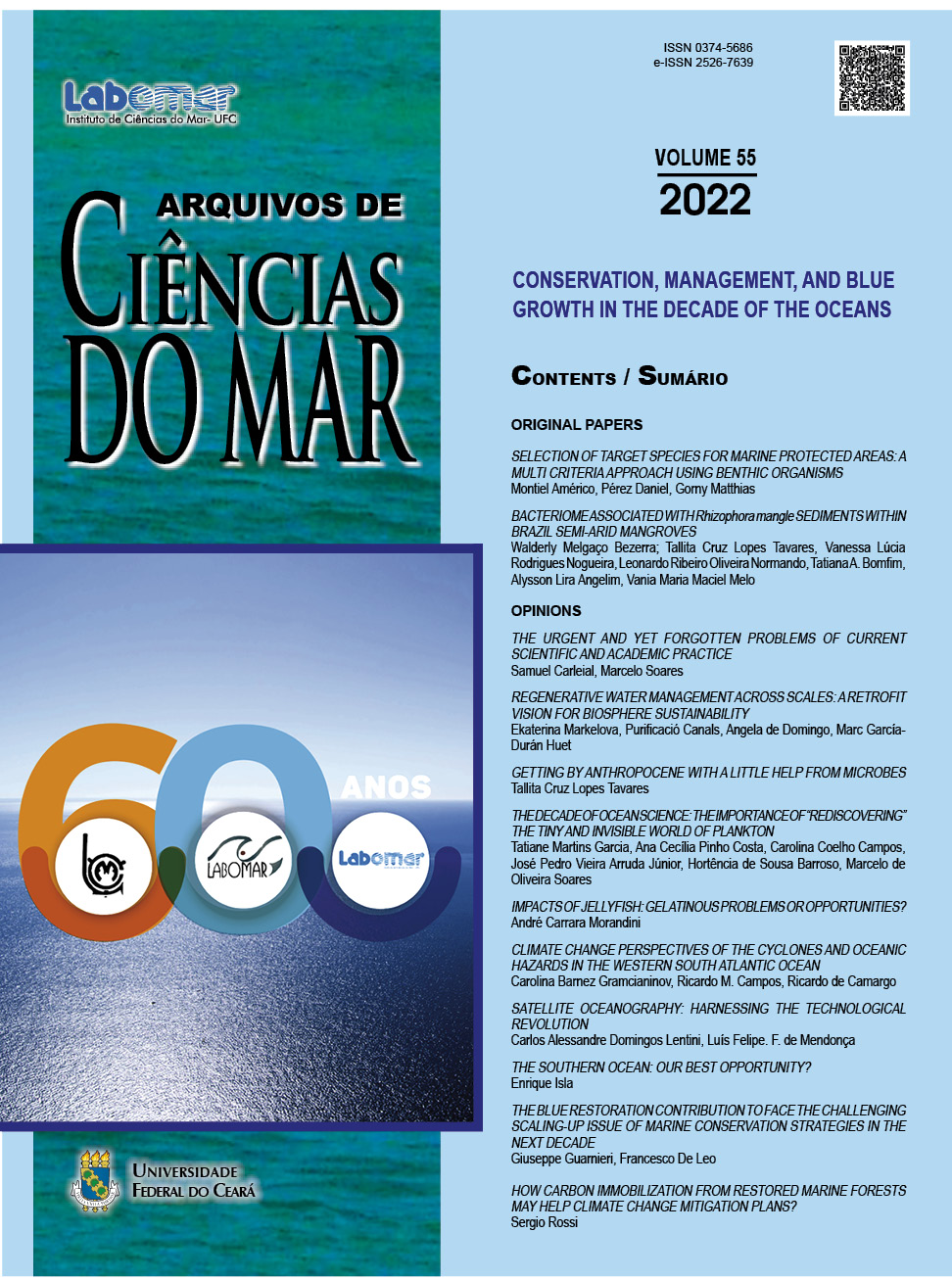THE DECADE OF OCEAN SCIENCE: THE IMPORTANCE OF “REDISCOVERING” THE TINY AND INVISIBLE WORLD OF PLANKTON
A Década da Ciência Oceânica: a importância de “redescobrir” o minúsculo e invisível mundo do plâncton
DOI:
https://doi.org/10.32360/acmar.v55iEspecial.78407Resumen
The Decade of Ocean Science for Sustainable Development (2021-2030) has just started, and multiple stakeholders, including scientists, policymakers, civil society, funders, and the private sector will join transnational efforts to reverse the severe cycle of ocean biodiversity decline. This viewpoint article emphasizes goal number 14 that refers to the conservation and sustainable use of marine resources, and will particularly discuss the challenges of plankton research in the ongoing Anthropocene and methods to promote a true societal understanding of these species. There are many challenges for this “tiny and invisible world”, especially because they are understudied and their importance in marine trophic webs, global biodiversity, and many plankton-mediated ecosystem services is often overlooked. This article discusses and highlights the ecological aspects of plankton communities according to the seven outcomes of the Ocean Decade. Although the impacts on benthic and nekton components (such as fish and corals) are more commonly known and recognized by society, plankton worldwide are also threatened by the loss of suitable habitats, range shift of species, organic pollution, invasive species, plastics, and global
climate change (e.g., extreme floods and droughts, heat waves, and warming). Ocean literacy is currently challenged in terms of the understanding of plankton, and it is important to explain the relevance of this “invisible world” to people of all ages, cultures, and school levels. Rapid, straightforward, and appropriate communication is required to engage the public and improve awareness and science-based policies related to this important, overlooked, and threatened component of marine life.
Keywords: marine plankton, marine food web, ocean decade, sustainable development, marine biodiversity.
Descargas
Publicado
Número
Sección
Licencia
1. Proposta de Política para Periódicos de Acesso Livre
Autores que publicam nesta revista concordam com os seguintes termos:
- Autores mantém os direitos autorais e concedem à revista o direito de primeira publicação, com o trabalho simultaneamente licenciado sob a Licença Creative Commons Attribution que permite o compartilhamento do trabalho com reconhecimento da autoria e publicação inicial nesta revista.
- Autores têm autorização para assumir contratos adicionais separadamente, para distribuição não-exclusiva da versão do trabalho publicada nesta revista (ex.: publicar em repositório institucional ou como capítulo de livro), com reconhecimento de autoria e publicação inicial nesta revista.
- Autores têm permissão e são estimulados a publicar e distribuir seu trabalho online (ex.: em repositórios institucionais ou na sua página pessoal) a qualquer ponto antes ou durante o processo editorial, já que isso pode gerar alterações produtivas, bem como aumentar o impacto e a citação do trabalho publicado (Veja O Efeito do Acesso Livre).

